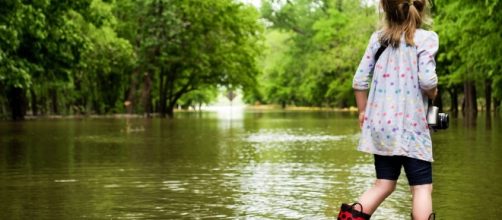While many Americans are still reeling from Hurricane Irma, thousands have not yet recovered from Hurricane Harvey. CBS confirms that 5,000 people are still sleeping in Red Cross shelters, following the destruction of their homes and damage to more than 120,000 others. While flood waters in some affected areas have already dried up, a new hazard awaits those that haven’t.
Contamination
The Environmental Protection Agency confirmed that many of the waste treatment plants have been damaged. As a result, fecal matter and other poisonous substances have been seeping into waterways, such as the Houston Energy Corridor.
The situation is expected to worsen since no one knows exactly how far the pollutants have spread and how many potable water sources have been tainted. The Baylor College of Medicine and Rice University has been testing waters in swamped communities and says inside some homes are more toxic than the outside. This is due to the warmth of living spaces being quite conducive to bacteria growth. Officials confirmed the presence of E. Coli, lead and arsenic in some waters and mosquito larvae in others. It’s obvious to authorities that cleanup efforts need to increase quickly. However, a shortage of power and inaccessible roads are sabotaging their attempts.
Many Houston residents are trying their best to avoid the floodwaters, while others have been wading through, trying to salvage personal belongings.
Children in some affected areas are even allowed to play in disaster zones. Officials at the Houston Methodist Hospital are warning people to stay out of the water at all costs because they can become very sick. They say several patients have already been treated for ringworm and skin infections such as cellulitis. Mosquito borne diseases such as Zika, West Nile, and Dengue, are also a threat, along with snakes and alligators that would favor their new waterlogged environment.
Don’t return home yet
Some homes have remained physically intact, but furniture such as sofas, beds, and rugs were soaked. While these would normally be able to dry in the sun and be used again, health officials are saying it’s impossible to do that this time.
They say the warm conditions, coupled with the length of time they’ve been soaked, would have caused mold and other toxic substances to grow and spread across surfaces. In their opinion, it would be best to throw such items out instead of trying to sanitize them. Even books and stuffed toys can harbor harmful bacteria and should be burnt. Officials are urging homeowners not to take up residence again, until their homes can be thoroughly sanitized and perhaps, even inspected by health officers.
The repayment of mortgages could also cause another headache for homeowners. Black Knight Financial Services, (BKFS) told CNBC that nearly 300,000 borrowers could become delinquent on their loans. It said after Hurricane Katrina, “mortgage delinquencies in Louisiana and Mississippi disaster areas, spiked 25 percentage points”.
Considering that there are twice as many mortgaged properties in Houston, then there were in Katrina hit areas, the prognosis is bad. BKFS expects banks to foreclose on as many as 160,000 homes due to their owners’ inability to repay their loans. Harvey is gone but for Houston residents, the battle is far from over.


